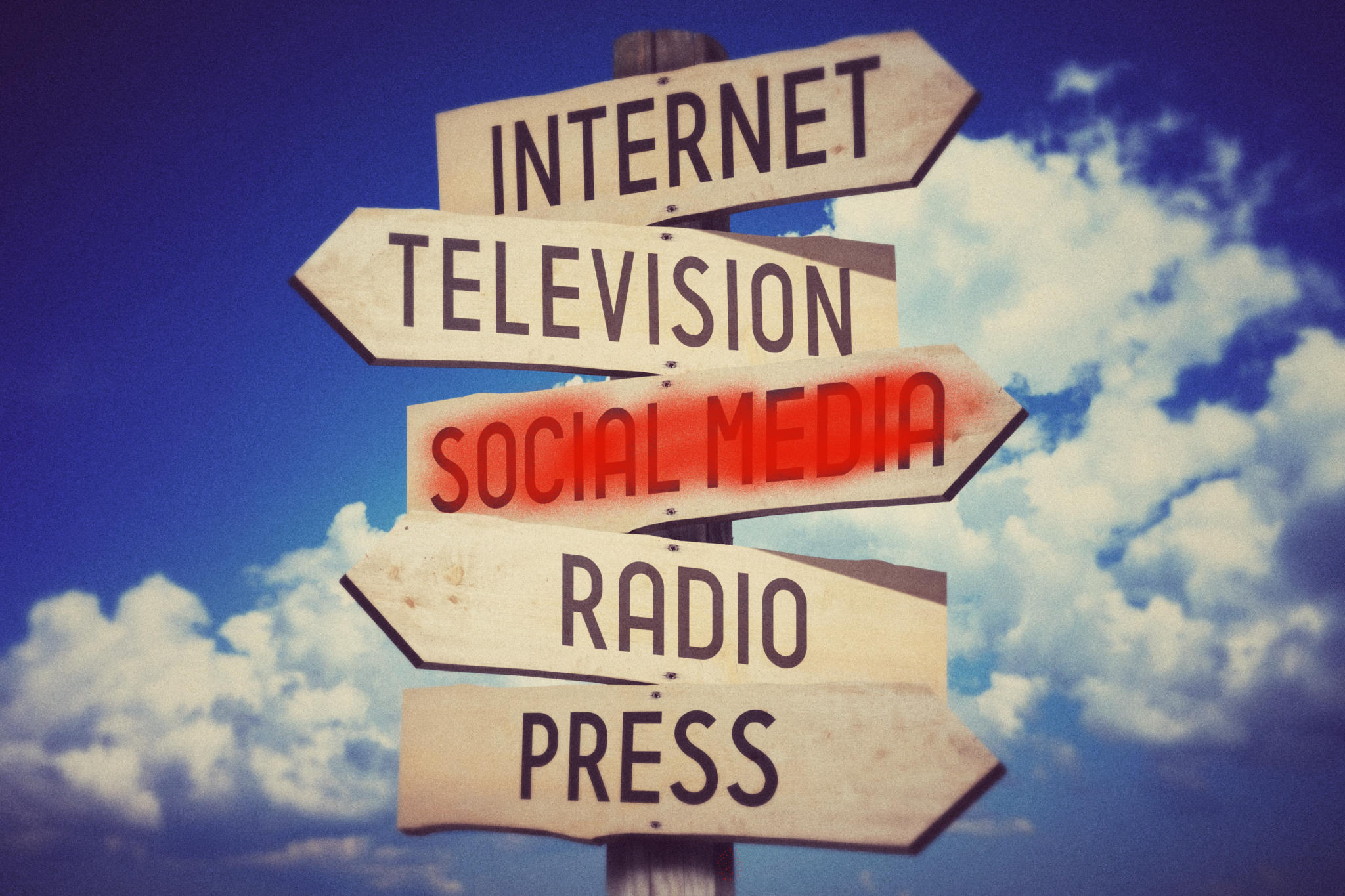I’ve (re)launched my YouTube channel: Essential Life with Jared. It’s a vlog series all about Portland, the Pacific Northwest, and the philosophy of essentialism. It’s about finding your own way and never walking somebody else’s path. It’s about living a life that’s most meaningful to you.
So without further adieu, presenting Episode 1 of the new series:
A couple of housekeeping notes: with the Pygmy Nuthatch channel being rebranded Essential Life, what does that mean for this blog? Well, I’ve decided to focus all my blogging attention on my main website Jared White.com. This blog will remain in “archived” status for the time being. However, I still have a soft spot for the Pygmy Nuthatch brand, and I still have a couple of book projects in the works, so my thinking is I’ll retool Pygmy Nuthatch into an independent book imprint. Not sure what the timeframe is for that, but it’ll at least be no sooner than next year (2019).
All that said, please subscribe to Essential Life on YouTube or hop over to Jared White.com and sign up for my general newsletter there if that’s of interest to you. Peace!
![]()
Get the latest articles from Pygmy Nuthatch—PLUS the chance to read excerpts from Free Agent Blast Off! before anyone else! Jared's upcoming book is action-packed with practical tips and insights into how to succeed as an independent creator.

Money is important. We need to be able to pay for the roof over our head and the food on our table. When you go indie as a freelancer, there is often a dizzying array of business expenses to contend with, not to mention all the little “perks” you now have to pay for yourself because guess what? Your employer is now you!
But here’s the deal: you must not let the daily grind of managing your cash flow encompass the entirety of your identity as an independent worker. You are not your income. The money you bring into your business is very important, yes, but there are many other important activities you should give yourself permission to engage in. They may not directly provide monetary benefits now–or ever–but they are investments in your creativity, health, and general well-being. And becoming a better you will inevitably pay dividends down the road.
Here are just a few activities you might want to consider that are as vital to the success of your business as making progress on client projects and bringing in revenue.
Networking, networking, networking. I’m not necessarily talking about a “business networking” group where you expect to get immediate referrals, although that can be beneficial depending on your industry.
No, I’m talking about generally finding tribes of interesting people and meeting with them. Meetup.com is a great way to find and join cool groups of people getting together to do stuff. Pick a hobby, a side-project, a sport–could be anything really. Then see if there’s a local community of people interested in that topic. If you’re feeling particularly adventurous, you might even decide to start a meetup of your own!
Having friends and seeking relationships throughout a diverse set of communities and perspectives will make you a more well-rounded person. Plus, nothing fuels creativity like novelty–you never know how trying something entirely new might inspire you!
The pressures of having to work for and on your business and needing to plan every minute detail of what your business is doing…it makes it very easy to get locked into a pattern of only learning what you need to know to get your immediate business done. For me, as a web designer & developer, that often means I’m only learning skills directly related to the projects clients have given me. But what about other skills? What about technologies that interest me but I have no way of knowing if they’ll be relevant to my work any time soon? What about other subjects that aren’t even technological in nature?
Steve Jobs once told a story about how he became interested in calligraphy and took a college course where he learned all about serif and sans-serif fonts and other aspects of typography. He wasn’t a graphics designer. This was ten years before the development of the Apple Macintosh. He just thought the subject was intriguing. Years later, however, when he headed up the skunkworks team that created the Mac, all he had learned came flooding back to him and fueled the advancement of typography for personal computers.
I recently finished binge-watching Mad Men (thank you Netflix). The aspects of creativity and how ideas form which the show explores I find absolutely fascinating. But what was most amusing to me was the way Don Draper at times would seemingly fall off the face of the earth (leaving his coworkers utterly befuddled), only to resurface later with a burst of new creative energy.
Now I’m not suggesting you drink way too much booze and then suddenly go on a road trip across America without notifying anybody. But I think there’s something extremely true about the notion that–sometimes–the only way you can produce great work is to stop working.
As a creative individual, the quality of your output is directly related to the quality of your life as a whole. And the older you get, the more this becomes apparent. If you’re only 22, you can probably get away with staying up until 3am and eating ramen noodles and still manage to crank out some cool stuff. But if you’re rapidly approaching your 40s (ahem, such as yours truly), you become painfully (literally!) aware of the need to sleep well, to exercise regularly, to eat right, and to take time for spiritual self-care. You can only abuse your body or your mind for so long before your quality of life suffers–and your work right along with it.
So give yourself permission to go on that week-long retreat. Give yourself permission to take a day off and catch up on sleep. Give yourself permission to reschedule meetings later in the day so you can work out at the gym in the morning. Your future self will thank you for the care you put in today.
The hard truth of independent work is realizing that nobody else is spending cycles thinking about how to take care of you. If you work for a good employer, there are people who get paid to figure out how to keep you happy. Sure, business is a cutthroat world and loyalty is hard to find, but if you’re lucky enough to find a company that really values its employees and treats them well, you can reap the benefits of that.
But as a freelancer, the only person in the world who cares about you (business-wise) is YOU. Healthcare? Your problem. Time management? Your problem. Cash flow difficulties? Your problem. Sales & marketing? Your problem. Clients driving you nuts? Your problem.
Everything is your problem. In some ways, that’s a blessing. It means you have direct control over everything that’s happening in your business! (And, being a bit of a control-freak, that’s why I enjoy being a freelancer!)
But as the saying goes, with great power comes great responsibility. You have great power over your life as a freelancer. You also have the great responsibility to care for your life, celebrate it, nurture it, and be thankful for it. Money is important, business is important–but at the end of the day, just remember:
You are not your income.

The concept of the “anchor client” in important in freelancing. It’s a company that has you on contract for an indefinite period of time and typically supplies a fairly steady workload that doesn’t fluctuate much. Whether you charge by the hour, the week, or some other unit of measurement, you can expect that they’ll be there for you on a regular, ongoing basis.
Sometimes freelancers get their start because their former employer continues to utilize their services on a contract basis. This can be a great way to launch into a new freelance career—however, there are some real dangers to be aware of (see the cons section below!) that have the potential to derail your business before it has the chance to really get off the ground.
In an ideal world, you’d have two or three anchor clients and be raking in the dough—but things rarely work out that way! Over the years, I’ve usually had only one anchor client at a time and in leaner times haven’t had any. I believe ultimately the pros of having an anchor client outweigh the cons, but these are still issues you should be familiar with. Let’s dive right in.
They provide “jobby job” style cash flow. There’s great comfort in being able to project out several weeks or months and knowing what to expect in your level of income. Smaller client projects will come and go, but with this base of financial stability, it makes it much easier to plan for the future and possibly take on some risks (such as buying new equipment, moving into a new office, bringing on additional personnel, etc.).
They supply a steady stream of work. After a while of juggling a large number of small projects, it can get quite tiring. The ability to block out a significant portion of the day to work on a single project for your anchor client can really help you get into a zen state of flow and maximize your sense of productivity.
They give you the freedom to try out different side projects. With the extra mental capacity that comes from knowing you don’t need to hustle and drum up new contracts constantly just to keep the lights on, it frees you up to spend some extra time on side projects, continuing education, and other creative pursuits.
They might drop your contract suddenly, plunging you into financial chaos. You can attempt to come up with ways to mitigate this contractually, but in my experience you generally won’t see it coming and are suddenly left scrambling for new work. Whether the company has run into their own cash flow constraints and you’re the collateral damage, or they’ve changed directions strategically, it’s always frustrating when the rug is suddenly pulled out from under you.
They can allow you to become complacent. If you have one anchor client that comprises more than 75% of your income, you’re essentially just an employee who happens to pay for your own benefits and other ancillary expenses. This is not a great way to build a business. In my opinion, you shouldn’t have any client that supplies more than 50% of your income. Diversification is what keeps the train rolling along and headed in the right direction, no matter what a single client may do unexpectedly. In addition, having a solid anchor client over time can lead to laziness in your sales pipeline. If you’ve just been working away on a big project for a long time and aren’t finding new leads and bringing in new business, that’s a major red flag.
They might not pay what you feel you’re worth. As someone who charges by the hour, I’ve generally found that I make less money per hour working for anchor clients. Perhaps it’s because they negotiated for a lower rate—nothing wrong with that, since you’ll avoid spending so much time and cost bringing on smaller projects regularly. Or perhaps you’ve raised your rates once or twice since your anchor client first contracted with you and they’re still on the old rate (and possibly not likely to budge). If this is the case, you have a decision to make. Do you just let them get away with paying you less, causing you to lose in potential opportunity costs? Do you try to ratchet down your level of engagement with them as you bring on new, higher-paying clients? Do you simply ask them for more money to do the same work you’ve been doing? I’ve seen a lot of freelancers (including myself!) wrestle with this issue frequently.
Overall, I believe freelance businesses are healthier when they have one or two anchor clients in the mix. As long as you’re aware of the potential pitfalls, avoid sales complacency, and strive to reach the level of income you’re worth, anchor clients will enable you to build a stable and successful freelance business for years to come.

For the the majority of my career, I’ve been an independent worker. It’s easy to take the lifestyle for granted after so much time being my own boss, but every now and then it’s good to take a step back and realize that—despite all the challenges that come with it—working as a free agent is a cherished privilege.
If you’re thinking about making the leap, or you’ve already gone independent but second-guessing if this is really the lifestyle for you, here are five reasons why I think being a free agent—whether as a freelancer or a content creator—is undeniably fabulous.
I crave variety in my work. If I have to accomplish the same flavor of tasks every single day, I grow thoroughly bored. As a free agent, I’m able to seek out projects, technologies, and industries that interest me and help me stay motivated. I’ve designed websites for book publishers and written biographies of wedding DJs. I’ve engineered marketplaces for wine suppliers and customized enterprise XML editors. I’ve gotten paid as a graphics designer, a UX specialist, a software developer, a writer, a video editor, and (crossing my fingers) I hope to get paid to write a soundtrack some day!
When you’re part of a company with a corporate structure outside of your control, you work with the people you work with. That’s it. If you enjoy hanging out with them and admire their output, good for you! But if you don’t…well, your options are limited. When you’re an independent worker, you have the opportunity to assemble a team around different projects or initiatives and find people you love to work with. (Assuming they’re also free agents and are available!)
As a free agent, you have full control over where (and when) you work. Sure, there may be certain expectations that you’ll be available at specific times for certain tasks, depending on the needs of your clients. But generally you’ll have a degree of freedom that’s difficult to find in the world of salaried positions. You’ll have a lot more leeway to travel, to work from home or a café or a cowork space or a library, or maybe even work onsite for different clients which can be a lot of fun too.
The relationship between employers and side projects can be a tricky one. Depending on the type of company you work for and the nature of your side project, you may discover that your employer is bothered by your focused attention away from their needs, or worse, they’ll want to claim your intellectual property as their own. No such hassle when you’re your own boss. You make up the rules! If you want to spend a few days now and then working on your own projects, or cram some effort into early mornings or nights or weekends, or alternate between weeks of client work and weeks of personal work (I know of a freelancer who did this and eventually switched to full-time work on their own software development)—it’s totally up to you.
Which brings us to the top reason why you should become a free agent: time. Time is the most valuable asset you possess. It’s so valuable precisely because it’s so limited. You have a finite lifespan, and there’s no way you can add more time or buy extra time (short of debatable methods of buying your way into a healthier lifestyle which might increase your lifespan). Because time is so precious, your top priority as a worker and as a human is to be mindful of how you’re spending it. There’s nothing worse than finding yourself in a position where your control over your schedule is compromised.
That’s why being a free agent is so incredible. You have full control over your work schedule. You decide what you’re going to do and when you’re going to do it. (Well, it is possible to arrange things with demanding clients such that you are a slave to their every whim. But I strongly recommend you avoid such projects like the plague!)
If you want to get up at 6am and work until 3pm, go for it. If you want to roll out of bed at 10am and sit down at your desk at noon, who’s going to argue? If you want to take a long break in the middle of the day to enjoy some sunshine outdoors and make up for it at night, that’s totally your prerogative. If you want to charge more for your services so you can afford a 4-day workweek instead of 5, that’s well within your wheelhouse.
At this point in my career, the freedom I have over when, where, and how I do my work is more important to me than anything else in business. I’m probably “unemployable” now, simply because I can’t imagine having as much flexibility working for a single company. I know of a lot of other free agents who feel exactly the same way. That’s why they’re free agents!
So there you have it: 5 reasons why you should become a free agent. Can you think of a 6th? I’d love to hear about it!

For years, we’ve had the notion drummed into our heads by internet nerds and pundits “in the know” that pay walls will fail and the very idea of charging for online content is absurd because nobody spends money on content—especially those pesky millennials who expect to get everything for free.
Well it’s time to call it like it is: those pundits were wrong, very wrong. Pay walls and other types of paid content products work. Consumers have gotten trained to pay for online subscriptions to a wide array of products and services across a whole range of industries. Platforms like Patreon and Kickstarter have successfully allowed content creators to monetize their work. And now an increasing number of media businesses have reached the point—not a moment too soon in my opinion—where they are shifting their focus away from squeezing every last drop of ad revenue out of mass traffic and instead toward asking their audiences to pay directly for quality content.
This is a far better state of affairs. I’m tired of being the product (the user) getting sold to the real customer (the advertiser). The biggest lie in the history of the internet is that content (and software in general) is free. It’s not. If you use a free service or read content for free, you are simply the product being sold to the real customers for real money—in other words, advertisers. And this ad-driven internet economy has had devistating effects on users’ security, privacy, and website performance—not to mention the rise of fake news and other “viral” phenomenons attempting to game the system.
2017 was the year where this became a tipping point. Ad blocking technology went mainstream. Major computer companies (Apple primarily) centered their marketing around protecting the security and privacy of users. The scourge of fake news brought a reckoning to social media platforms. And sci-fi shows in the popular culture such as Black Mirror introduced us to the stark reality of how out-of-control social sharing and personal data tracking are paving the way to a dreadful dystopian future.
Trevor Kaufman, CEO of paywall tech and customer intelligence firm Piano, has witnessed first hand this dramatic newsroom shift away from chasing social media and search traffic toward developing real transactional relationships with readers directly:
“Every year, there are new costs that get added to the adtech economy that media companies rely on. First came viewability, then came ad blocking, then it was ad fraud. Clearly, the concentration of the duopoly has also been a factor. And just in the last year, we had very significant moves like what Apple did with Safari and third-party cookies. The Facebook feed changes are very significant. And so is General Data Protection Regulation in Europe.
So what we see is a return to first-party data being vital and a return to thinking about readers as customers. They’re no longer cattle who are being monetized en masse, but rather people who we’re trying to appeal to and influence their behavior. That, again, has always been the business of media and marketing. I think it’s great to have a return to that.”
Even more surprising (to some, not to me) is the fact that those darn millennials are not only showing a willingness to buy into this new reader-focused media landscape, they’re more willing to pay than their generational predecessors:
“There’s also this crazy myth that millennials won’t pay for things, but the reality is that it’s boomers who won’t pay. Millennials are used to an à la carte world and are much more willing to pay for stuff. Overall, there’s a great rebalancing that’s happening right now.”
In other words, the future of quality journalism and related media is transactional—audiences paying for access to content. That doesn’t necessarily mean we’re at the point now where everything is rosy. My personal belief is that the web needs a pervasive micropayments layer where people can easily share a percentage of a monthly money pool with content creators as they browse around normally. But in lieu of that, subscriptions to individual media sources or packaged media bundles seems to be the trend.
However content gets monetized, I’m thrilled that this is the direction the media industry is heading. It’s high time we tipped the balance of power away from the Googles and Facebooks of the world and back into the hands of individual readers.